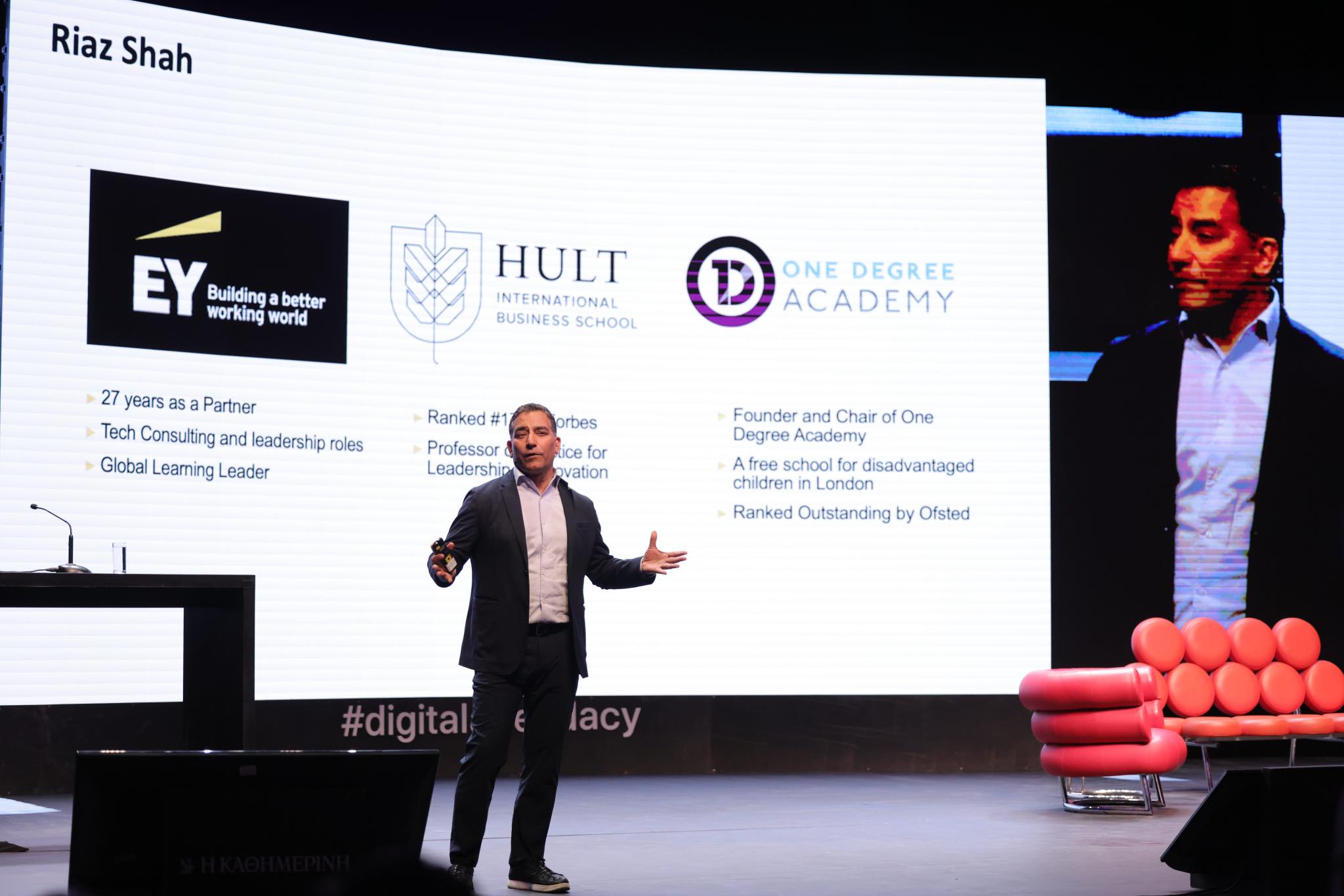
Ioanna Kyriakou
Riaz Shah, a four-decade member of EY (Ernst & Young), now engaged in global projects, with a particular focus on education and startup entrepreneurship, took center stage at the 6th Digital Agenda Cyprus Summit. Shah's presentation revolved around the transformative impact of new technologies on the work environment and the efficacy of a four-day workweek in enhancing productivity and employee loyalty.
Shah shared insights from the largest four-day working survey conducted in the UK, spanning June to December 2022, encompassing 61 companies and involving 3,300 employees. The findings were compelling, revealing a 57% decrease in resignations and a 37% improvement in employee health. Most notably, 92% of companies have permanently embraced the four-day workweek, with 15% of employees expressing unwavering resistance to returning to the traditional five-day workweek.
Additionally, Shah highlighted the evolving demands of today's employees, stressing their increasing need for flexibility. His data indicated that 54% of employees are inclined to leave their jobs if they do not receive the desired flexibility, encompassing aspects such as work location, hours, tasks, working methods, and collaboration partners. Furthermore, Shah underscored the growing importance of purpose and social goals within the work environment. Employees now expect their employers to adopt aligned political stances and missions that resonate with their values.

The role of AI in shaping the future of work also occupied Shah's presentation. He emphasized that AI will not replace humans but will reshape their tasks. Sectors most affected by AI's influence include research, design, journalism, teaching, content creation, legal advisory, accounting, financial analysis, and customer service. While acknowledging AI's potential to displace certain jobs, Shah emphasized its capacity to create new opportunities. This shift raises vital questions about the balance between job displacement and creation, the readiness to retrain those affected, and the long-term consequences, for which Shah advocated bold thinking.
In closing, Shah urged leaders to approach these changes with curiosity, critical thinking, innovation, flexibility, and an emphasis on human-centric, collaborative, and competitive approaches. As the landscape of work continues to evolve, embracing change with an open mind becomes paramount.
































